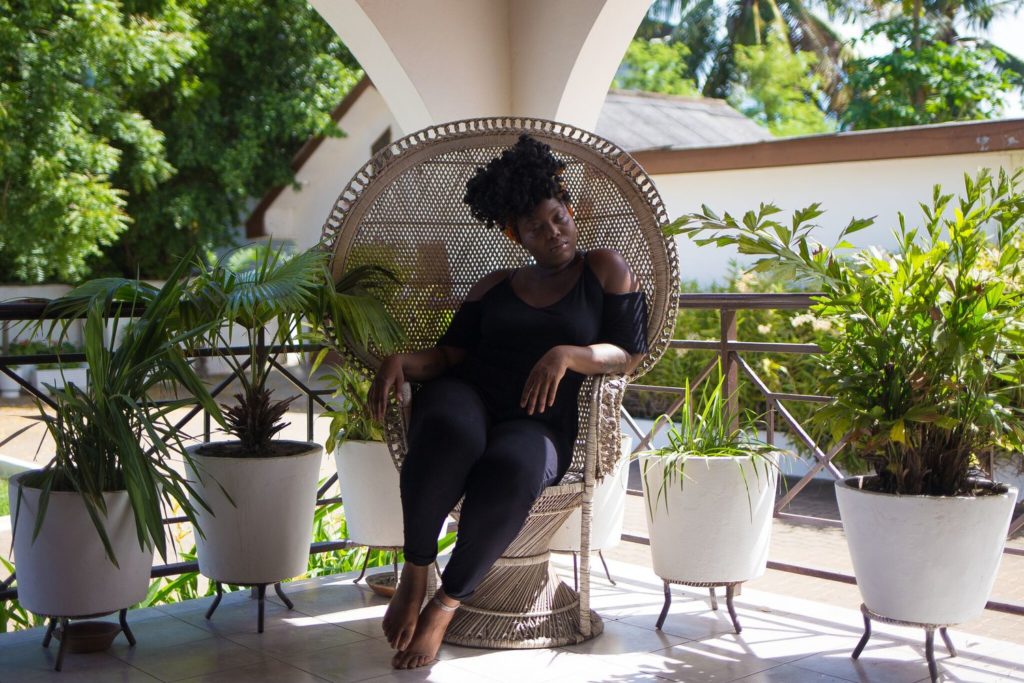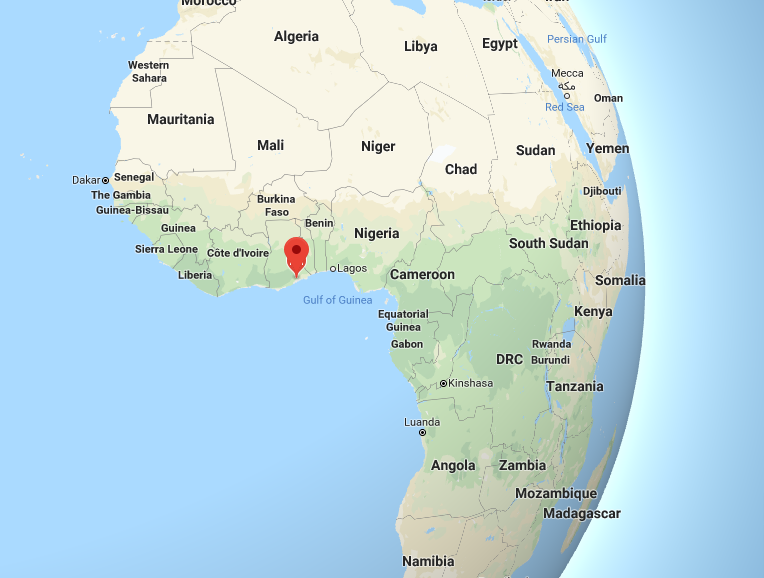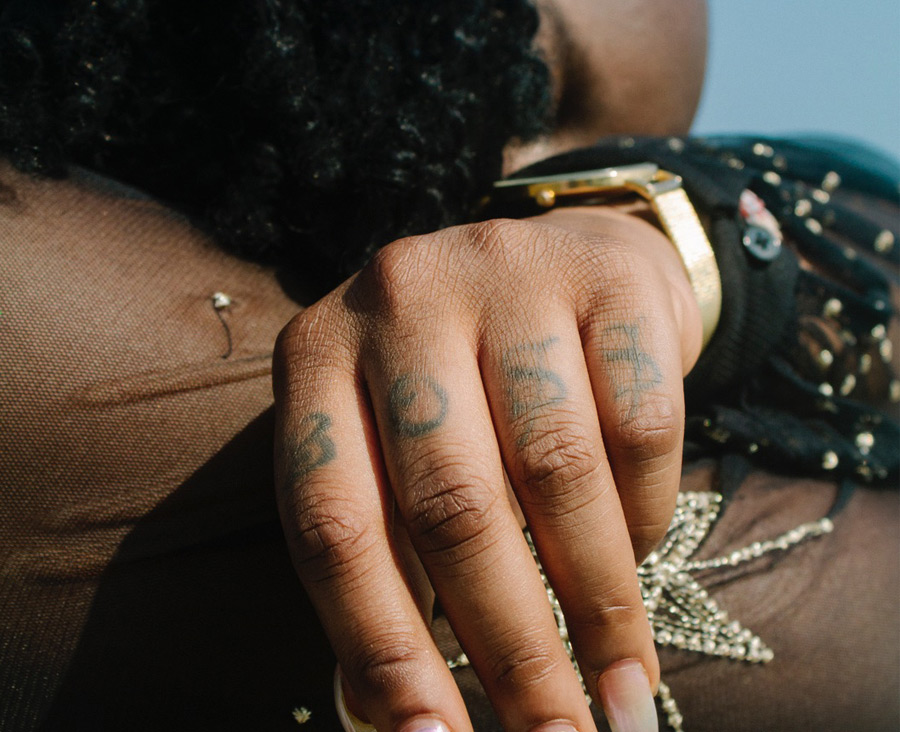Ghanaian singer-songwriter Ria Boss is sitting cross-legged on a bed in front of a laptop emblazoned with a We Are Wakanda sticker. She lights a joint with her left hand, the knuckles tattooed with the letters “B-O-S-S.” She inhales. Exhales. She softly croons, “My tea’s gone cold, I wondering why I got out of bed at all.”
The Dido-inspired “Not So Bad” is the first of four short films Boss will be releasing over the next eight weeks. The films are an intimate look into her life and songwriting process.
“Each song [in the series] is a song that I played on repeat that caught me at a particular moment in my life” she says.
Boss endured three years in a emotionally and physically abusive relationship. During that time, she found strength in Dido’s “Thank You.”
“It helped me cope. And in a way also helped me leave, realizing what was on the other side of it, the pain, wasn’t so bad after all.”
For the past eight years, Boss was living in the United States; first in New York City, where she pursued a bachelor’s degree in culture and media studies, and then in Los Angeles, where she attended the Musicians Institute. Now, she is establishing herself as a powerhouse singer, songwriter and women’s rights activist in the Accra music scene. She came back to Ghana, she says, because something was calling her home.

Photo courtesy of Ria Boss.
“I realized there was somewhat of a renaissance happening here in Accra,” she says. “I felt that I was not only missing out but that I was doing myself a disservice by not participating in this coming of age.”
The sprawling West African capital is an ever-evolving melting pot of international influences and diverse artists pushing the boundaries of old-school hiplife, Ghanaian afrobeats and dancehall music. While Boss finds her inspiration in the harmonies of the church gospel and neo-soul legends like Nina Simone, Erykah Badu and Ella Fitzgerald, her sound is distinct. And like her home country, she is also transforming.

Accra is the capital of Ghana, on the Atlantic coast of West Africa.
“I’m taking a bit of a sonic shift,” she explains. “I’ve experimented in all different genres but I’ve found myself very impacted by the neo-soul, afro-soul realm. Now I’m playing around and trying to take more risks with my motown influences and my jazz influences.”
Upon her return to Ghana in April 2017, Boss released her debut EP, Find Your Free. She describes the album as a ‘rebirth’ and a healing journey after the pain of her past relationship. The album is mesmerizing and entrancing; her powerful lyrics garner strength over soulful blues and jazz melodies. Prior to its release, Boss promoted the album by posting diary entries on her social media.
“I spoke about rape, I spoke about abortion, depression, suicidal thoughts…things that I didn’t think the average Ghanaian woman might want to talk about openly,” she says. “And I did that because I felt that in order to go through this rebirth you have to be honest and you have to lay yourself in front of everyone.
“I felt really free after that and I did feel like I’d come back from that born again and lighter.”
Then, in November, Boss released low-fi // experiments vol. 1. The tracks and visuals were self-produced and recorded inside her apartment to acclaim for her novel use of analog sounds. The three-track release exemplifies her impressive vocals, evermore arresting over minimalist sound and production.
Amid songwriting, recording, filmmaking and acting, Boss is showing no signs of slowing down. She is currently working on a platform to amplify women’s voices in Ghana. She is planning a womens-only music and arts festival set to launch in Accra next year.
“I want more visibility for women in the arts. I want all women vendors, performers… everyone from the DJ to the ticket vendor is a woman. I want to make sure that the funds we get from that go back towards women in arts,”
“I want to make sure that young girls can see a career in the arts is possible to them.”
Details of the festival will be released in the coming months. Find her online at www.riaboss.com, and follow her on Twitter and Instagram to stay on top of her latest news!

